The Black Napoleon
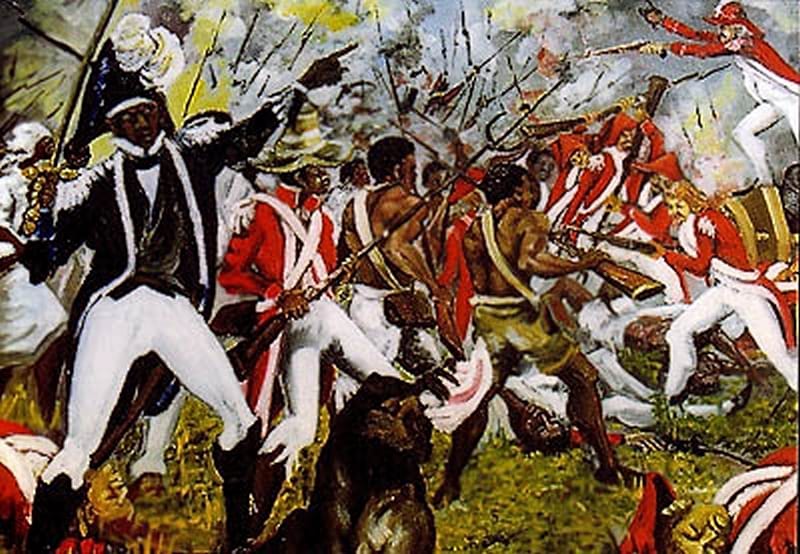
History You Wish School Told You About for today: the Haitian Revolution.
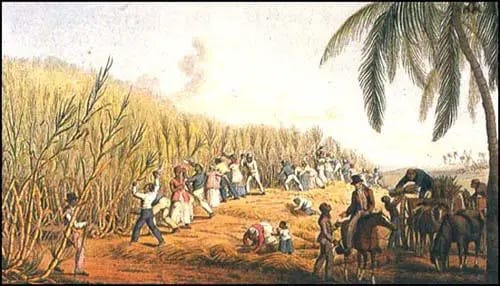
Haiti was a sugar plantation colony. In the 16th century, farming sugar would literally straight up kill you. It was incredibly hard, back-breaking manual labor in tropical conditions that absolutely no one would do voluntarily. "Good" thing slavery existed - and the French (who owned Haiti) used slaves as a temporary resource. Work them until they died, bring in more slaves, rinse repeat.
The slaves were not amused by this, as you can well imagine. And the French were not particularly good at advanced planning, since the slave population of Haiti was about 90% of the total population, and sugar production involves really big sickles, and I think you see where this is going and yes, it did.
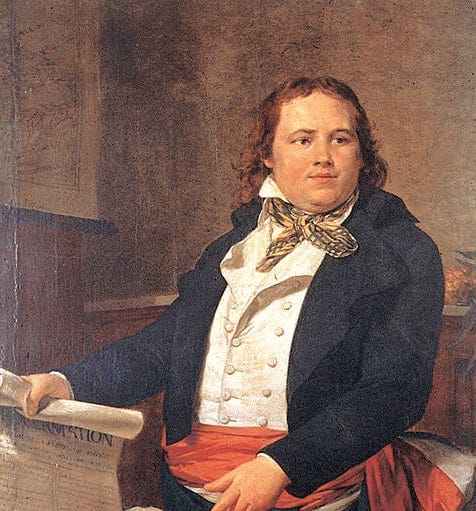
In 1789, the French Revolution happened. Suddenly, instead of l'etat c'est moi, we have the Declaration of the Rights of Man, Thermidor, the guillotine, the whole thing. But not in Haiti, mais non! Haiti produced the majority of the world's coffee and sugar, and giving this up simply would not do. For their part, the white plantation owners figured that since France was going mad, it was a perfect time to declare independence. The slaves, led by Toussaint Louverture, thought the same, but it's safe to say their definition was different, and they revolted, quickly taking over a large part of Haiti.
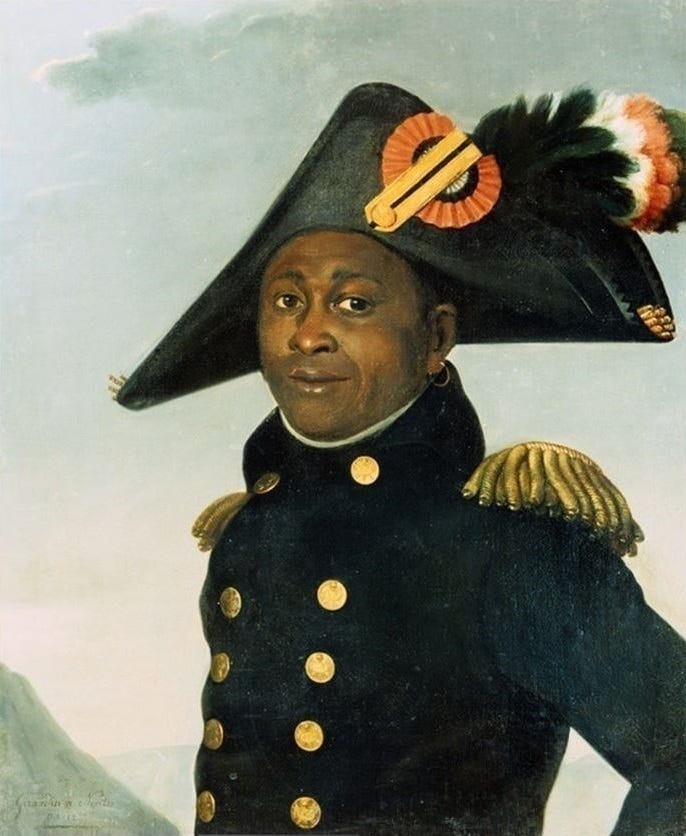
France, still convulsed with the Revolution and the Terror and also having that rare attack of moral fiber, responded by giving freed blacks in the Colonies full civil rights. This shocked the rest of the world, but it was also an attempt to politically split the Haitian rebels - a minority of whom had already won their freedom legally before the revolution. The white plantation owners then tried to defect to Britain, hoping they would bring back the good old days. The British promptly invaded and assisted by Spain, took control of the island and re-imposed slavery. France, led by the new governor Sonthonax, who history records as the first Third Way Democrat by appealing to everyone and doing very little, responded by declaring all the slaves of Haiti free. This meant little since the only army France had left to it on Haiti was… Louverture's.
Louverture, it turned out, was pretty good at guerilla warfare, and also had the benefit of fighting on the platform of "not enslaving 90% of everyone" - thus, he won, beating the British and Spanish. By 1800, Napoleon was in power in France and Louverture's Haiti was independent in all but name - and the first non-racial society in the New World.
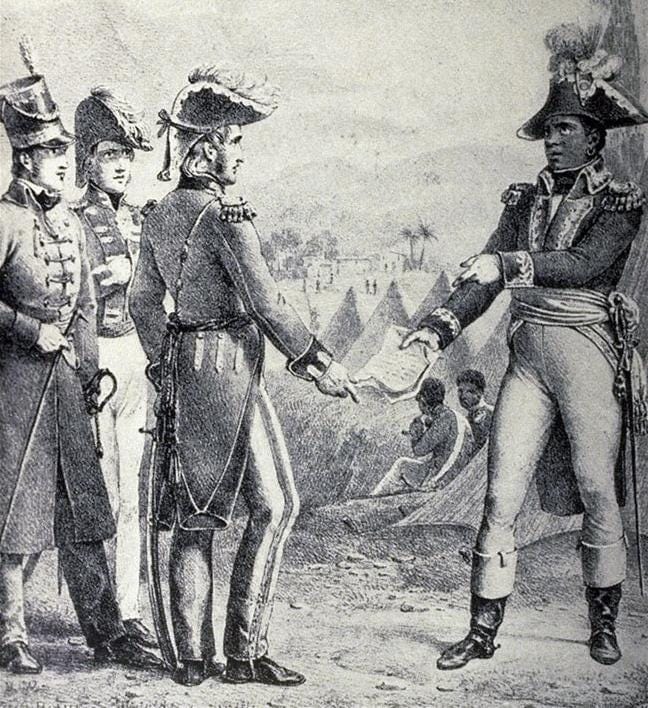
Unfortunately, France wasn't big enough to hold both Napoleon and Louverture (or, really, Napoleon or anyone else) and after some disputes over Haiti's sovereignty, Napoleon sent a force of troops in 1802 to re-impose French law. Louverture took his men into the hills and waited for the French invaders to die from disease (in Haiti, not that much of a stretch) - the French instead put the island to the torch and sword. Horrified at the carnage, Louverture met the French commander to parley, was arrested, and imprisoned (he died a year later).
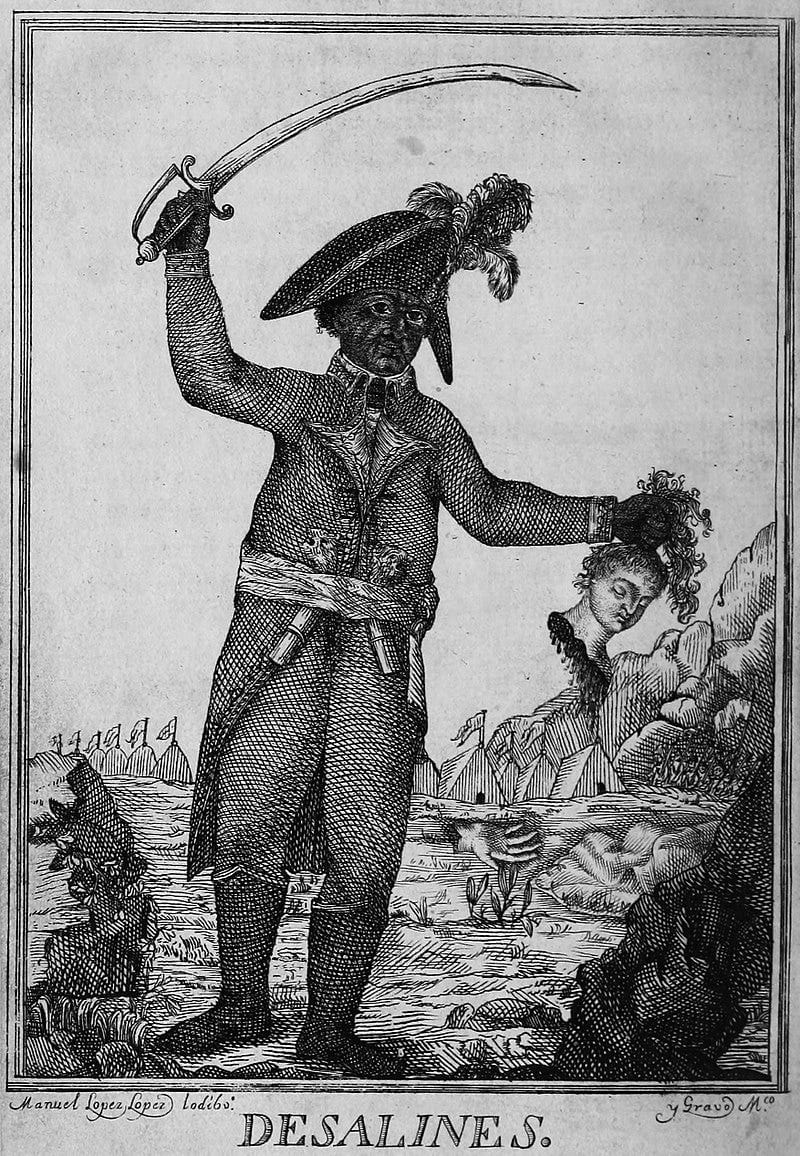
His second-in-command, Jean-Jacques Dessalines, was far more brutal than Louverture (it remains unclear whether he was responsible for Louverture's capture). After winning the war against the French in 1804, he led a massacre of the few French white settlers left in Haiti, forbade any whites from setting foot on the island, declared himself Emperor for life, and was killed by his own men 2 years later. His successors, wanting to enrich themselves, re-imposed slavery in all but name to keep the sugar plantations running. The new nation promptly went into massive debt, and to keep the economy running France imposed even more crippling debt (essentially billing Haiti for their own independence) - this eventually led to the US occupying the country to ensure debt repayment a century later.
The Haitian Revolution frightened the world - it was a successful popular uprising of an enslaved people, against the superpowers of the day, led by "the Black Napoleon".
The echoes continue through the years.